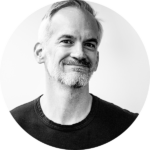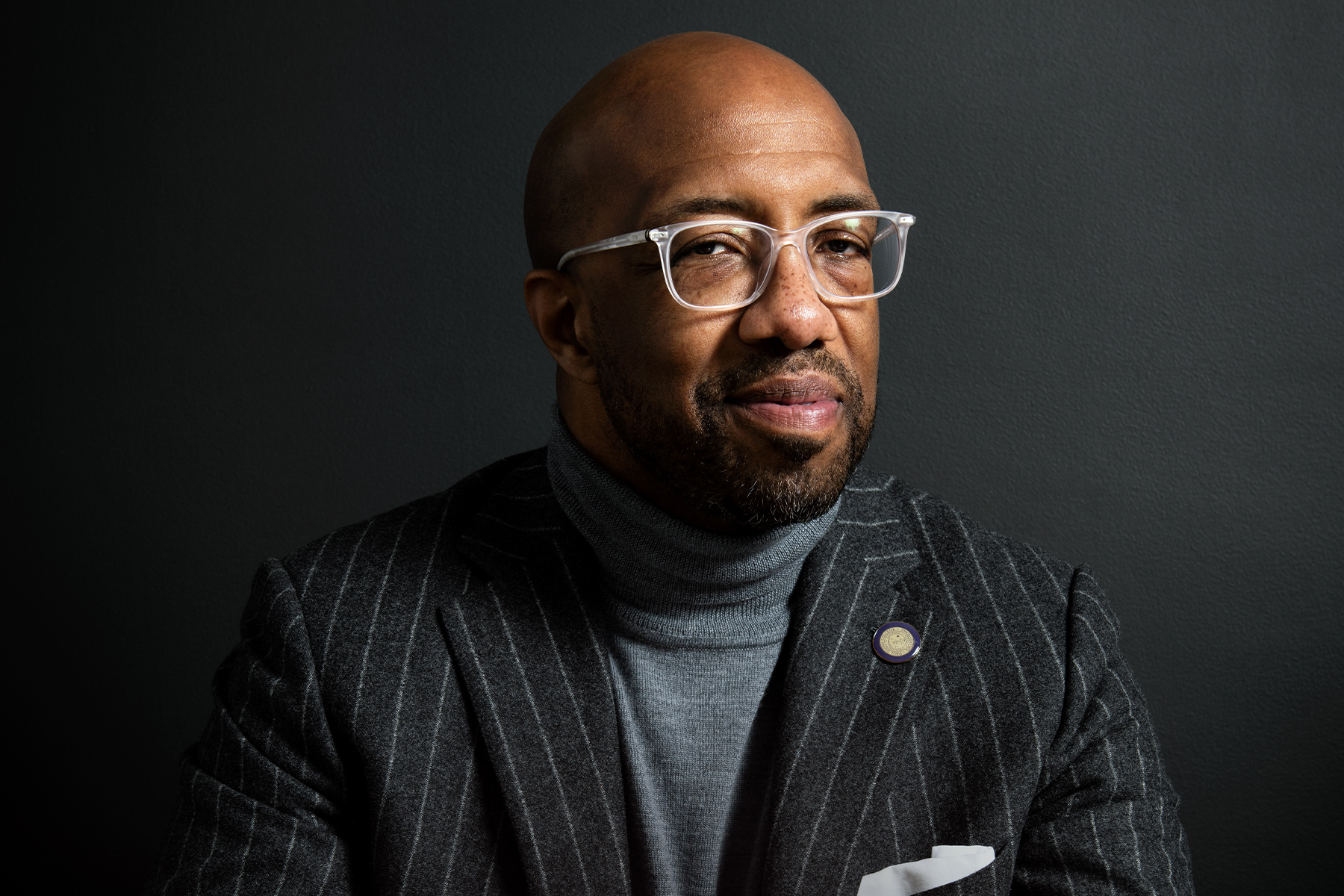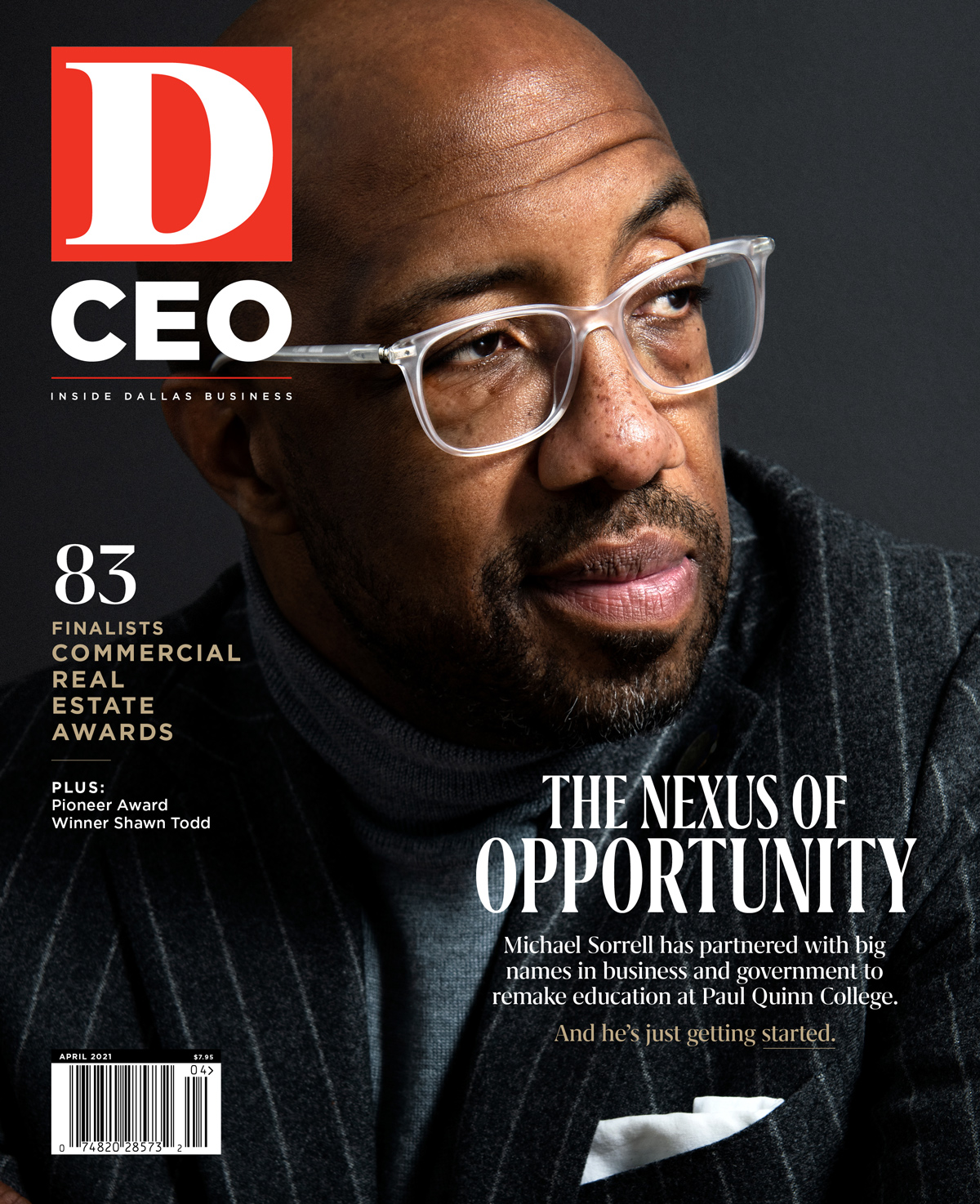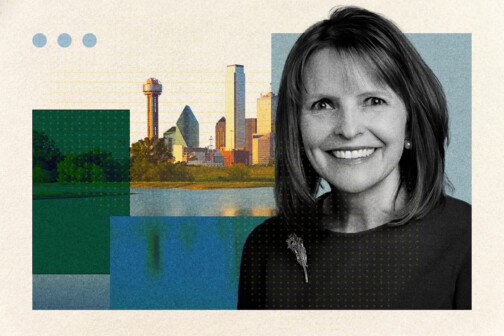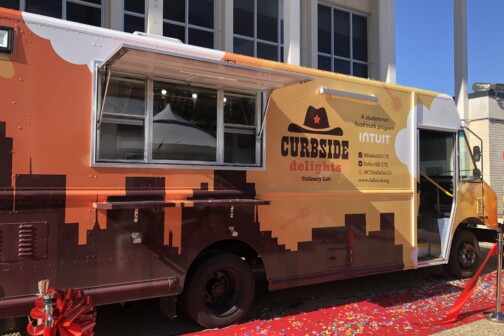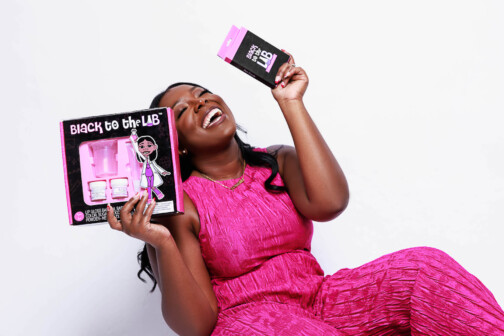Michael Sorrell is a few minutes late for our Zoom call—he was showing his 10-year-old son, Michael, how to shovel snow, he apologizes. A couple of inches blanketed the city last night, the kickoff to the coldest three-day stretch in Dallas history. Clearing sidewalks and driveways was a regular chore for Sorrell growing up in Chicago, where a week like this is just a normal winter. But this is the first time his son has had to pick up a shovel. “I have one ear listening in case it all goes left,” he says.
That’s a familiar position for the 54-year-old Sorrell, mirroring the vigilant approach he first adopted during his early days as a lawyer and public affairs consultant, when he displayed a talent for crisis management. Once you’ve spent any time in that line of work, he explains, its habits stick with you. “You’re always sleeping with one eye open, OK?”
Sorrell strikes a much more casual profile in his box on the computer screen, his shaved head and trimmed beard, accented by round tortoiseshell glasses, poking out of a loose turtleneck sweater. He appears professorial, a look he has grown into over the past decade or so. When Sorrell took over as president at Paul Quinn College in 2007, he didn’t have any background in education to speak of. But back then, the school didn’t need an academic.
Paul Quinn is the oldest historically Black university west of the Mississippi and, at the time, was a failing institution. It was losing money and students and on the verge of losing its accreditation. There were a thousand fires everywhere, some small, some five-alarmers, some on the verge of becoming actual fires on the 146-acre campus eight miles south of downtown. The school needed a fixer, and in Sorrell, it got a great one.
A little more than a decade later, in 2017, Paul Quinn wasn’t just surviving but thriving. It was officially recognized as the ninth federally funded work college in the country—the first in Texas and the only historically Black institution on the list. In 2018, it expanded to Plano and broke ground on the first new building on its southern Dallas campus in 40 years. That same year, Fortune magazine ranked Sorrell No. 34 on its list of The World’s 50 Greatest Leaders, between JPMorgan Chase CEO Jamie Dimon and actress Reese Witherspoon. Since taking over, he had improved the school in every metric while also reducing tuition costs, ensuring that no student graduated with more than $10,000 in debt.
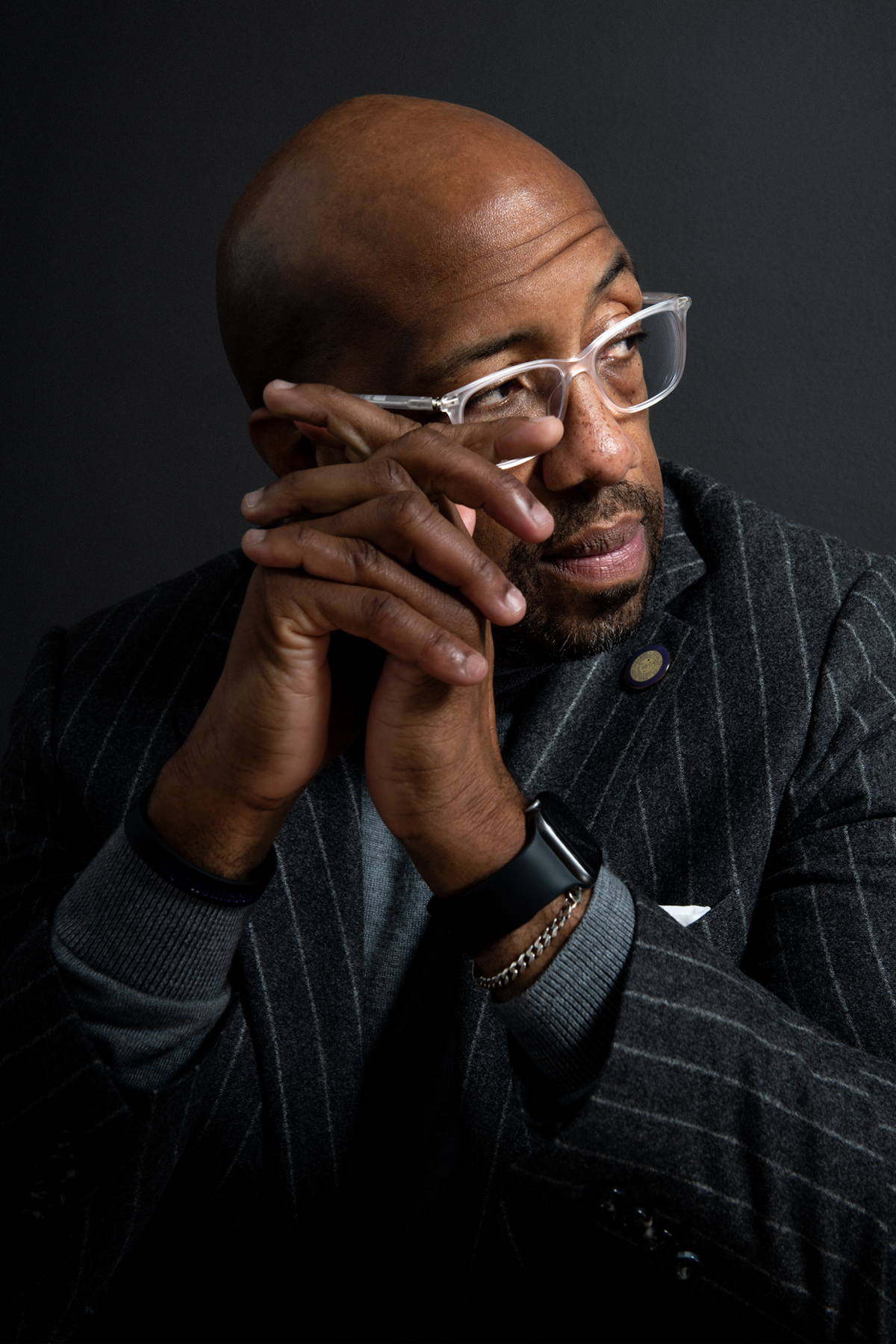
And then, in early 2020, when everything was pointed up, the school needed a crisis manager again, as COVID-19 hit and the world fell apart. Sorrell was ready, because he had never stopped sleeping with one eye open.
“Doing that work has really given me a unique perspective and advantage to be leading in this moment in time, right?” Sorrell punctuates many of his sentences this way, including his listener on his thought, like they are making a point together. “Because it’s taught me the importance of communicating. It’s taught me the importance of patience, taught me the importance of discipline. But it has also taught me the opportunities that present themselves in difficult moments.”
A Dreamer and Doer
Sorrell had plenty of opportunities at the beginning of his tenure at Paul Quinn, because there were plenty of difficult moments. He was the school’s sixth president in six years, inheriting a 1 percent graduation rate and a campus full of abandoned buildings. The school was nearly bankrupt and running deficits as high as $1 million. By month three, its accreditation status was placed on probation. Within two years, it had lost 400 students. But 14 years later, the graduation rate is up to 40 percent, still lower than what Sorrell would like (he’s aiming for 90 percent) but a number to be proud of, given the economic problems that much of its student body faces. (Almost 90 percent qualify for Pell Grants, meaning they are under the poverty line.) Enrollment has stabilized at 551 students, and there is room to grow once the school adds capacity; there has been a waitlist to get in for the past several years. Paul Quinn is fully accredited by the Transnational Association of Christian Colleges and Schools and is seen as a paradigm-shifting model of higher education, operating at a profit for the bulk of the last decade. That is, in part, because it has received the most seven-figure gifts in the school’s history.
To get from there to here, Paul Quinn needed the fresh ideas of a dreamer carried out with the pragmatism of a doer. It needed someone with the vision to write a new story for the school and the charisma to tell that story to the rest of the world. It needed a strong leader, because the tough times weren’t over just yet. In short, it needed someone like Michael Sorrell. “A visionary with a heart,” as Dallas Mavericks CEO Cynt Marshall puts it.
Sorrell started Paul Quinn’s transformation from the outside in. One of his first changes was instituting a business casual dress code. To help his students—he calls them “Quinnites”—meet the new standard, he set up the Clothes Closet, “a free ‘boutique’ where students can get new items as well as the occasional gently worn Armani suit or St. John dress,” as the New York Times reported in April 2008.
“And then everyone started running stories about that, and that got a lot of attention and gave us the ability to talk about ourselves differently,” Sorrell says now. “It was about sending messages to people that we’re going to be something different, and different applies to every aspect of our lives.”
One of the people who got the message was Dallas businessman and philanthropist Trammell S. Crow. He called Sorrell’s office in the fall of 2009 to ask him to lunch, and the pair immediately hit it off. “Everybody loves that man,” Crow says. “He’s got gravitas without the pomp.”
Sorrell calls Crow “the patron saint of Paul Quinn.” His name will be on a LEED-certified living and learning center set to open when students return to campus. And it was Crow who provided the seed money for Sorrell’s next big idea after that initial lunch. Sorrell had disbanded the school’s football program, cutting a $600,000 line item from the budget. With backing from Crow and PepsiCo’s Food For Good initiative (Crow put them together), he converted the erstwhile football field into a two-acre organic garden, now known as the WE Over ME Farm.
“What I told our board, when they gave the approval for the farm, I said, ‘This is going to be the thing that saves our school.’ And one of my trustees said, ‘We’re going to make that much money farming?’ And I laughed. I said, ‘Not if we grow something legal,’ right? No. I said, ‘We won’t. It’s not that big of a farm. But here’s what it does: it says, ‘We have so much faith in ourselves that we’re not going to spend all our time begging for things. We’re actually going to give away things. We’re going to stand in the gap and be more for people who need us.’ And that was something people hadn’t seen before.”
Much of the produce grown is sold to Legends Hospitality, a Jerry Jones family affiliate that operates at AT&T Stadium. The school also donates to the surrounding community. But Sorrell was right: its biggest success has been at changing the narrative about Paul Quinn. Maybe too successful, honestly. There have been times when Sorrell admits he didn’t want to talk about the farm, mainly because that’s all anyone wanted to talk about. “I would show up places, and people were like, ‘Tell me about your agriculture strategy and your farming strategy, and I was just like, ‘I’m not a farmer. I’m an entrepreneur. This was an entrepreneurial endeavor, OK? I can’t tell you anything about crop rotations and stuff like that.’ ”
You can understand Sorrell’s hesitation. It wasn’t the first idea he had for Paul Quinn College, and it certainly wasn’t the last. It’s not even why the school is a success. That has more to do with a less eye-catching conversion he started in 2013, turning Paul Quinn into a work college. Under that model, all students are required to work a certain number of hours at the college; part of their earnings goes toward tuition. It keeps the tuition costs lower (with the aid of federal funding) and staff costs down.
Sorrell exported the idea to Plano in 2018, after he was randomly seated next to Mayor Harry LaRosiliere at an event. During a more formal meeting later, they disagreed on who was the greater rapper, Tupac Shakur (Sorrell) or the Notorious B.I.G. (the Harlem-raised LaRosiliere), but did have at least one thing in common. “A real passion for education, for opportunity,” LaRosiliere says. Both believe the true nexus of opportunity exists within a combination of government, education, and business. What they’ve created together is exactly that.
At PQC-Plano, there is no campus; all classes are remote, with meetings taking place in various boardrooms or libraries. Students intern with one of the program’s corporate partners, including JPMorgan Chase, Toyota, and Liberty Mutual. LaRosiliere’s goal was to get up to 100 students, a number that was hit pre-COVID. (It’s around 60 now, and USAA has just come on board with another 20 scholarships.)
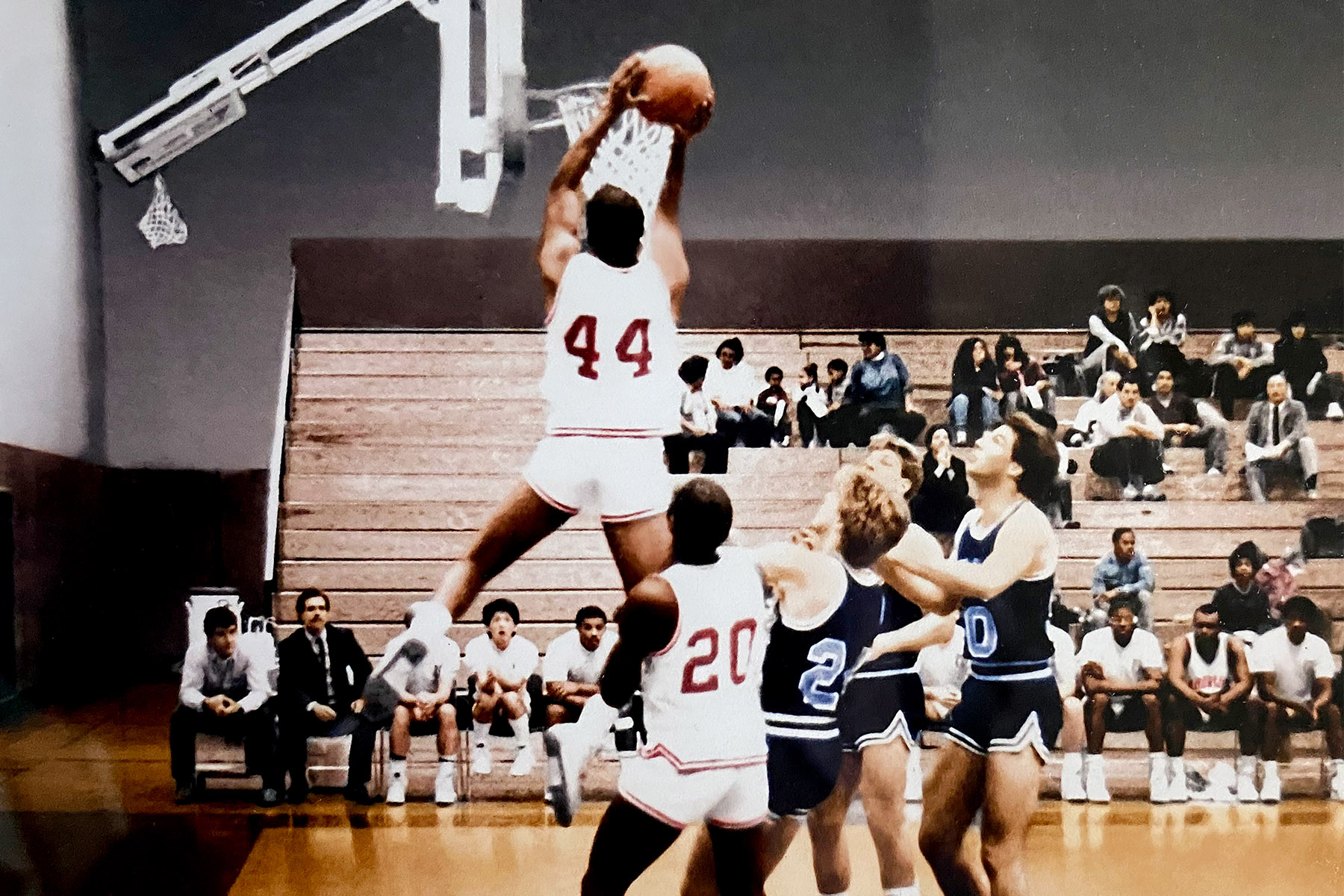
Plano is just the first site of Sorrell’s planned network of urban work colleges, and he says he already would have expanded to other cities had the pandemic not gotten in the way. He’s cagey about where he will take it next—he hints it’s outside of Texas—as well as what his next big idea is. All he will allow is the scope of his ambition.
“We’re going to take a really hard shot at remaking education,” he says. “Period. I’m working on a book now that talks about new vision for education in this country. We didn’t just come to try and address a struggling four-year college in southern Dallas, right? We’re coming for everything. We think that the educational system is under-serving people who need it to perform the most. … These institutions are in every community in America, so if we view them differently, if we view our responsibility in education differently, if we really explore the possibilities, then we can remake this country in a way that it’s equitable and just for everyone.”
The Basketball Connection
A week or so after Sorrell and I spoke, Paul Quinn and the Dallas Mavericks formally announced their partnership on a new degree plan called LISTEN (Leadership, Innovation, Sports Management, Technology, Entrepreneurship, and Networking). “We want it to be a diverse major where they are ready to go in several different directions, leadership being the key piece,” Cynt Marshall says.
She has known Sorrell since one of her daughters attended Paul Quinn. “We’re making a total commitment. We’ll have some of our employees as mentors. These kids, several of them will have summer jobs with us, or they’ll have internships. Then, of course, obviously, they’ll have an opportunity to work for us permanently.” Marshall mentions the organization maybe will even have a building on campus one day.
The partnership with the Mavericks brings Sorrell’s story full circle, because basketball has a lot to do with how he ended up at Paul Quinn, and why he’s still there. He says he first heard of the school via a short article in Jet magazine after Paul Quinn’s basketball team won a national championship in 1990, the year the school moved north from its former home in Waco. And basketball is how he first got involved Paul Quinn, in 2001.
His knees won’t let him play now, he says, but he was still in his prime then, 27 years old and only a few years removed from his days as a high-scoring forward at Oberlin College in Ohio. After work and on Saturday mornings, he’d play in pickup basketball games at the downtown YMCA. (The 6-foot-4 Sorrell always sought out the most competitive runs wherever he lived.) At the Y, he met a number of Paul Quinn graduates who made the Chicago transplant feel at home in Dallas. To repay their kindness, Sorrell began donating money to the school and volunteering on campus. He even filled in for a professor once. Then Dr. Lee Monroe, who had been Paul Quinn’s president since 1992, stepped down.
There’s nothing easy about leading people you love. … You don’t have the luxury of not getting it right.
Michael Sorrell | Paul Quinn College
“I have no idea why I thought I should be president, and it’s a bit absurd when I look back on it,” Sorrell says. “I called up the search firm and just said, ‘Hey, Michael Sorrell. I think I should be president of Paul Quinn.’ And the woman who was running the search sort of chuckled, and she said, ‘Listen, that’s not really how this stuff works.’ And I said, ‘OK, tell me how it works.’ I mean, completely undeterred, you know?”
His brashness landed him a seat on the board, which just gave him an up-close view of the turnover at the top. “It’s very humbling to want a job and to watch people kind of go through leadership positions for that job, and no one ever thinks that maybe you should get a shot,” he says. “And for somebody who’s built a life of succeeding, well, I got a little mad, and then it wasn’t as if things were going spectacularly well, right? So, I decided: I’m never going to be president here.”
In fact, he planned to end his involvement altogether. He had his letter of resignation written and ready to be faxed, sitting on the corner of his desk. He was part of a prospective sports team ownership group headed up by former Duke basketball stars Christian Laettner and Brian Davis; they won back-to-back national titles when Sorrell was at the university’s law school, and he later became an adviser and attorney for their Blue Devil Ventures. They had made a bid for the Memphis Grizzlies, and if it went through, Sorrell would become the organization’s president and get a small stake in the team. He would be living “the Range Rover lifestyle,” as he calls it.
The deal seemed close enough that in March 2007, Sorrell was driving to Oklahoma City to scout University of Texas star Kevin Durant, who would enter the NBA draft that year. And that’s when the call he had given up on finally came: “How would you like to be president of Paul Quinn College?” He said he’d think about it and call back. (The scenario of choosing between the presidencies of a college and an NBA team led Sorrell’s younger sister Kellie, a Chicago public school teacher, to call him “the Black Forrest Gump.”) He decided to give the school 90 days as interim president while his group finished buying the Grizzlies. He has since given them 14 years and counting.
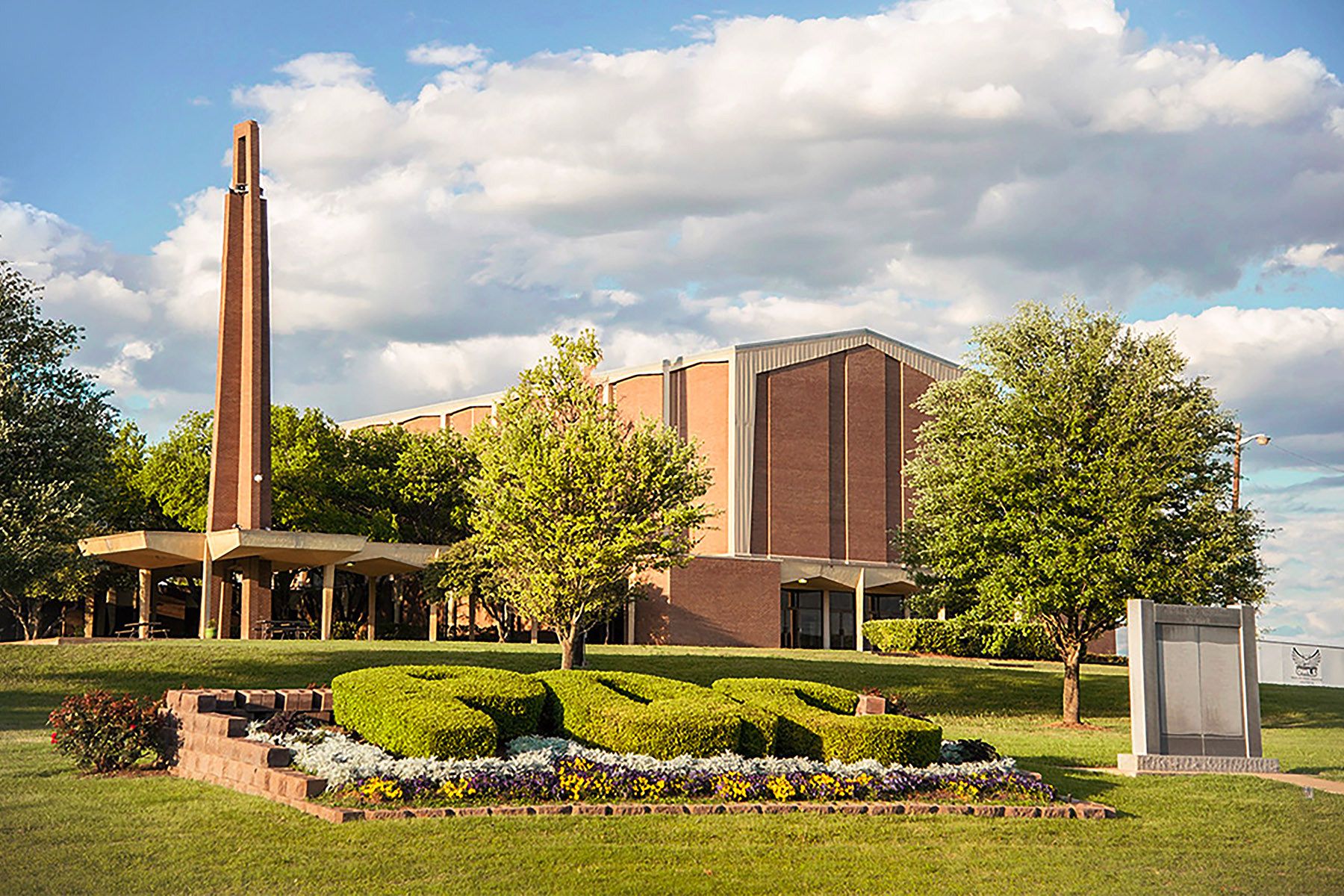
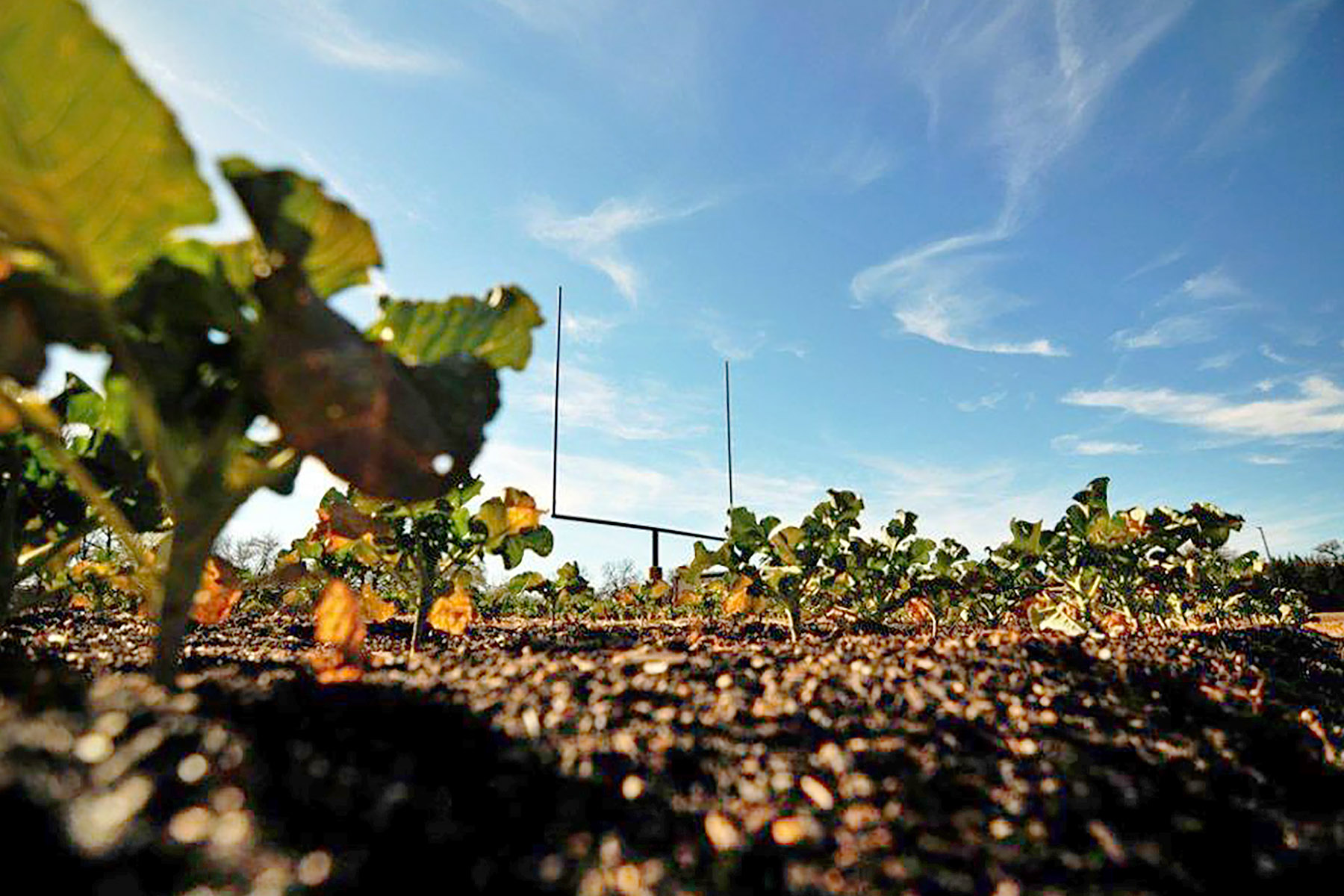
The group’s bid for the Grizzlies fell through, but Sorrell has never treated Paul Quinn like it was a runner-up. “The Memphis Grizzlies would have been a wonderful job, but I think I have found my calling,” he says. “It turns out this was exactly what I was supposed to do. And it has been hard. It has challenged me emotionally and physically. There’s nothing easy about leading people you love, right? Because it becomes more personal, and to identify with the hopes and dreams that people have—and folks from under-resourced communities, when they invest in education, it’s a disproportionate amount of their resources. So, you don’t have the luxury of not getting it right.”
Seeing the Opportunities
Sorrell knew he had to get it right as the coronavirus started to wriggle its way into every corner of the country early last spring. On Wednesday, March 11, 2020, he notified students of the decision to discontinue face-to-face learning at Paul Quinn and sent all of his Quinnites home. The college was one of the first to do so. The NBA would push pause on its season later that night, during the second half of a nationally televised Dallas Mavericks game, setting off a chain of events that essentially shut down the country by the end of that week. While most businesses and many schools have reopened to some degree since then, Paul Quinn remains locked down.
“The first thing that I’ve learned—I don’t know if it’s so much learned as it’s been reconfirmed, sadly—is that everyone doesn’t have the will to perform under extended periods of duress,” Sorrell says. “And it takes special types of people, I think, to be faced day after day after day with hardships, with no real sign of what the other side will look like and when it will arrive.”
Sorrell knew from the beginning that when he sent everyone home due to the coronavirus, they wouldn’t necessarily be coming back anytime soon. He held out hope that there might still be an in-person graduation ceremony in May, but he saw that what they were facing wasn’t as temporary as some believed. “We sort of understood the crisis, I think, far earlier than the overwhelming majority of other colleges and universities, right? And probably institutions and businesses, period.”
He credits his foresight to his sleep-with-one-eye-open mindset and also Michael Lewis’ book, The Fifth Risk: Undoing Democracy, which made the argument that the U.S. government was weaker than at any point in the nation’s recent history, thanks to the Trump administration dismantling federal agencies. Sorrell had read the 2018 bestseller when he got on his stationary bike at night after putting his kids to bed, and as he read, he thought, “We will be so incredibly lucky if we get out of this guy’s presidency with no catastrophic national crisis.” He assumed if something did happen, it would involve foreign policy.
“I had no idea the problem was going to be a global pandemic, right?” So, Sorrell wasn’t prepared for the actual crisis, but when it came, because of his background and The Fifth Risk, he was able to understand the scale of it. He read a study by researchers at Cornell University that made it clear the virus responded perfectly to residential college life. There was no way he could bring his Quinnites back until there was reliable testing and a vaccine. (In the meantime, their tuition was reduced by $2,000, and every student in need has received wifi hotspots and laptops to continue online learning.) That meant Paul Quinn was looking at a year, minimum, of no on-campus classes, no students in its dormitories, more or less returning the school to the ghost town Sorrell inherited in 2007.
He asked his staff to see the opportunity. “We said, ‘What if we have a year-and-a-half until students come back? What would we do with a year and a half to fix everything, right? Let’s identify our problem areas, and let’s fix them. Let’s become something different.’”
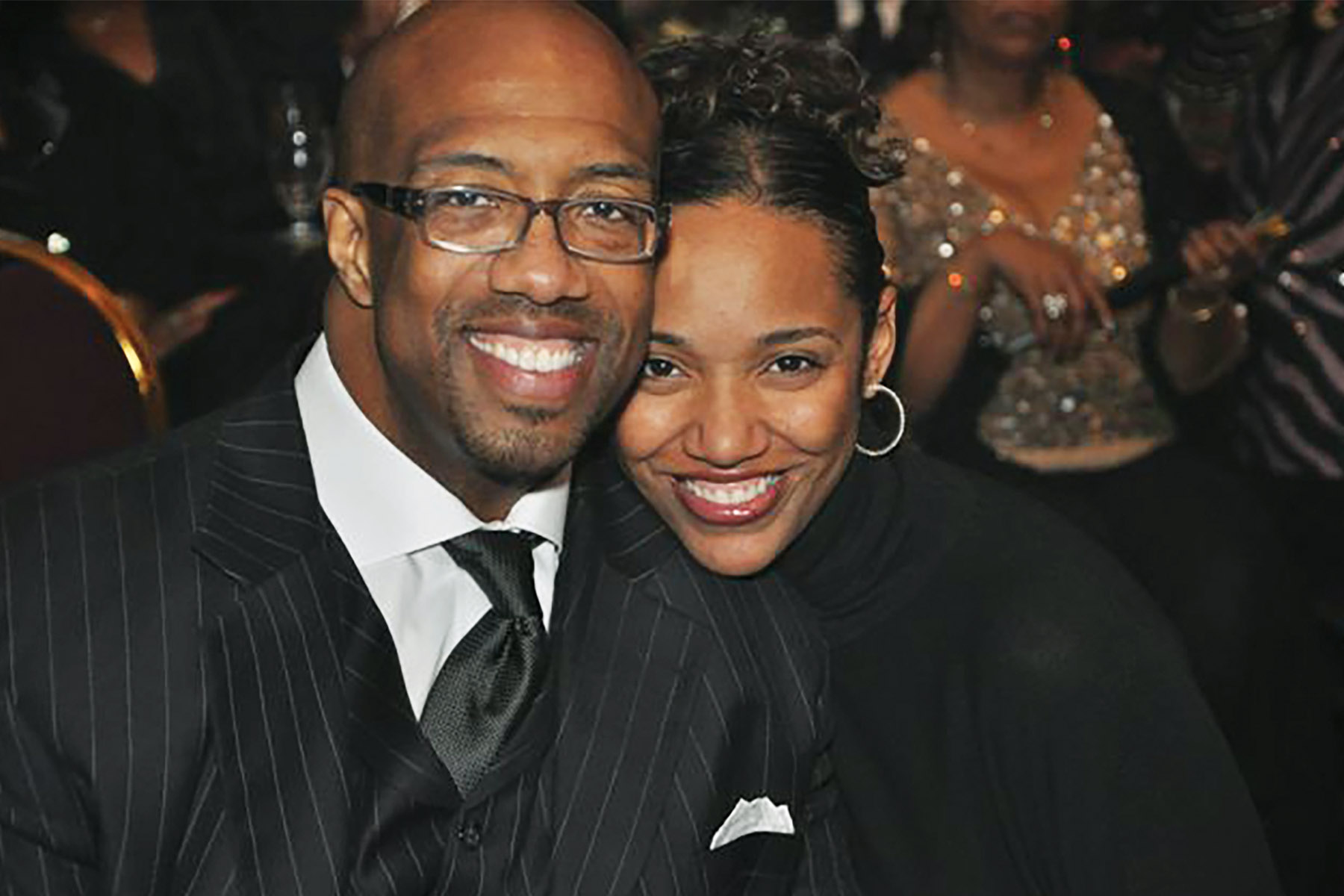
And, so, they did. By the time students return, Sorrell says, Paul Quinn will have finished three new buildings, introduced a KIPP charter high school and a DISD International Baccalaureate secondary school, announced two graduate programs (the first two in its history), and revamped several departments. There is the just-announced partnership with the Mavericks. Students will also find a new park, walking/running path, and two new murals.
“We are literally remaking the institution,” Sorrell says. “I mean, just the experience that the students will have when they come back will make it very, very clear that we did not sit on our hands and wish that we had a different environment, right? We made the best use of this moment.”
And when they come back, he will be there, as usual, one ear listening in case it all goes left.
Sorrell suffered sudden cardiac death in 2008.
It became a clarifying moment for him in two big ways.
Sorrell calls it his Iron Man moment now. “You know, how he wakes up in the cave with the wires coming out of his chest, right?” Sorrell’s cave was a room at Methodist Hospital in North Oak Cliff, where he came to on Sept. 11, 2008, with his girlfriend, Natalie Jenkins, explaining to him that he’d had to be resuscitated, and that she had helped revive him. They had been at his home, in bed for the night, when he started having a seizure. And then he died. Natalie called 911 and began CPR. “I didn’t even know she knew CPR,” Sorrell says. “I didn’t know she had been a lifeguard in high school.” EMTs arrived and took over, shocking his heart two times, bringing him back to life.
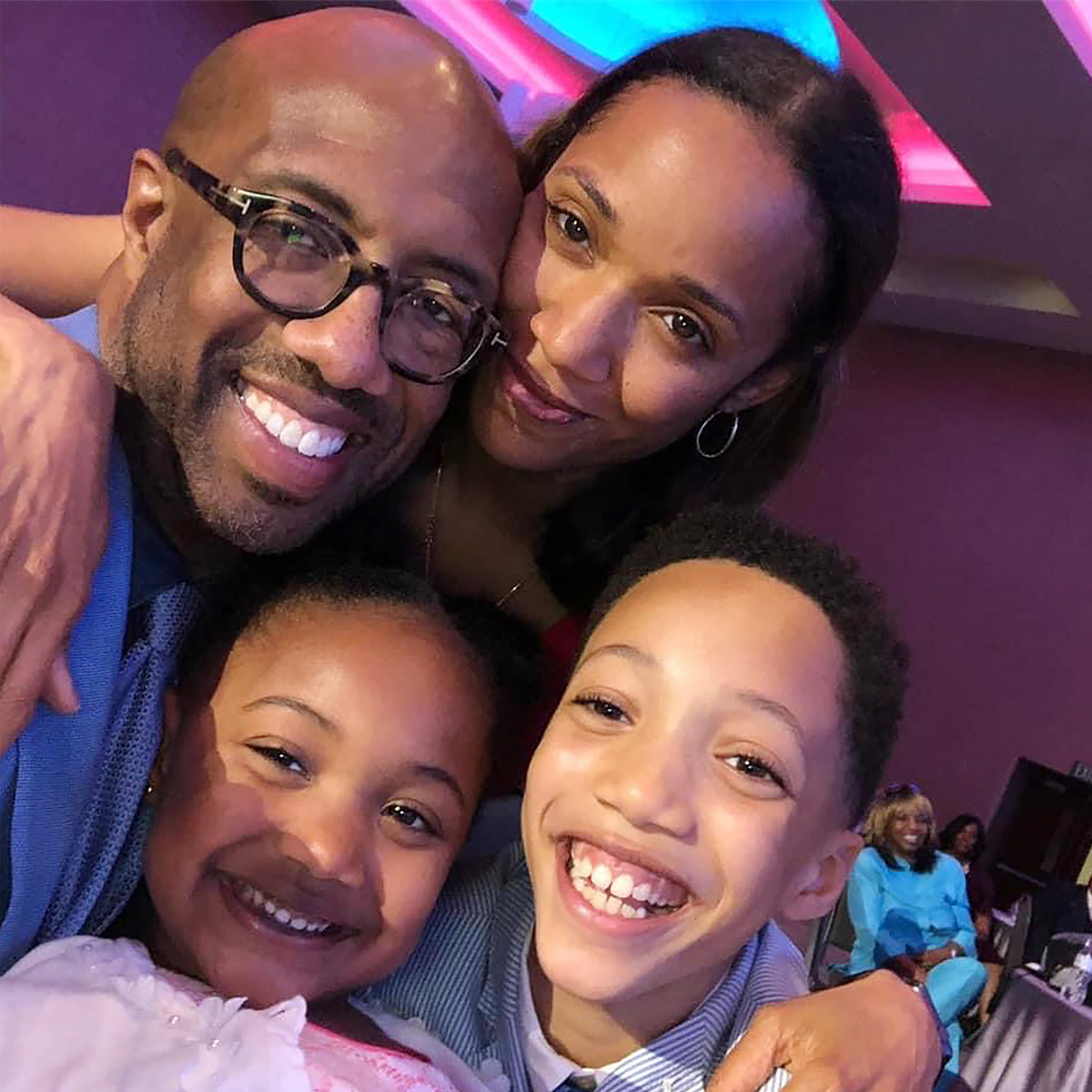
At the hospital, doctors determined that he had suffered sudden cardiac death, an unexpected change in heart rhythm that kills about 325,000 adults in the United States every year. Sorrell says he had a 2 percent chance of living and regaining all of his faculties. He was, of course, one of the lucky ones, and it clarified a couple of things for him, as near-death episodes tend to do. One, it confirmed that Natalie Jenkins would be his wife. “When a woman saves your life, it definitely moves her to the top of the marriage prospect list,” he says. They were married a year later. And two, Paul Quinn was going to make it. “I sit there, and in that moment, I realize, ‘We’re going to win,’ ” Sorrell says. “ ‘We’re going to win at Paul Quinn, because I should be dead.’ I was like, ‘The Lord doesn’t save you to humiliate you. If we weren’t going to win and I should be dead, I would be dead.’ And that’s when I knew.”
Get the D CEO Newsletter
Author
